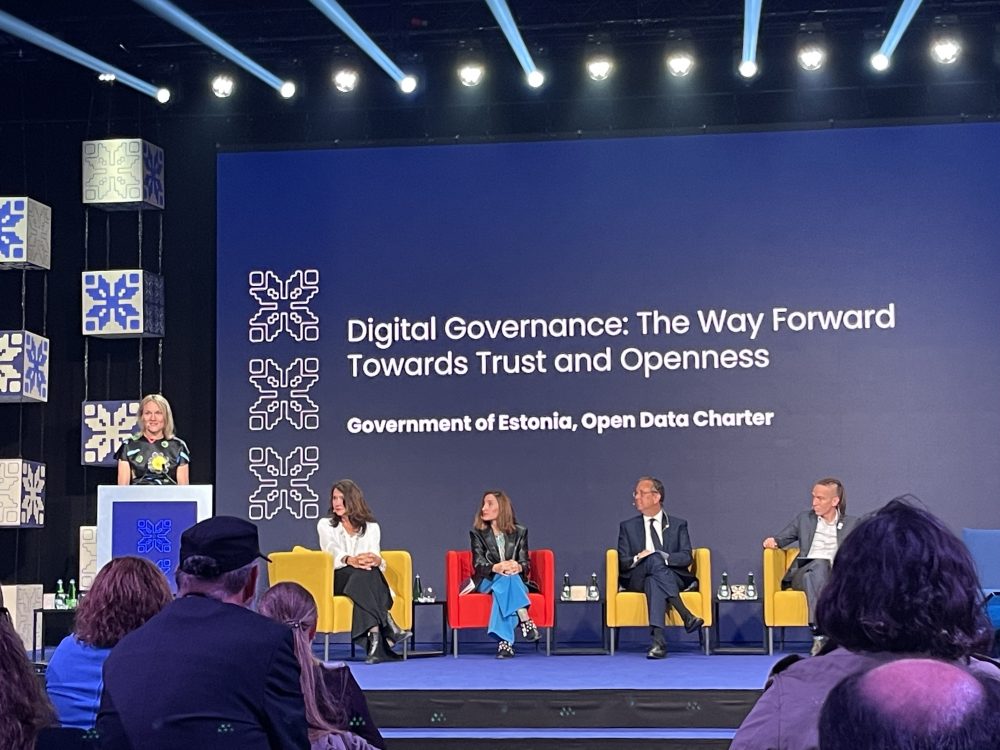Data, Digital, and Policy at DG
For over a decade, DG was widely known as “The Gateway”: as an IT vendor and curator of global public goods, such as Zunia, Country Gateways, and dgMarket. Today, we continue to be a trusted developer of digital and data solutions for international development – but we have also built out a strong policy focus.
Why? After a history of deep relationships with country governments and development partners, we realized that we had a lot to say.
Our Policy Focus
DG is uniquely positioned to add to the policy discussion. Our globally-based team understands the sectoral and country-context, our partnership ethos means we are well equipped to ask and seek answers to these questions, and our approach centers on co-creating flexible solutions and iterating to achieve better outcomes. In line with our mission and vision, we feel it is important to use our experience to inform global discussions to change business-as-usual thinking.
We were at the forefront of the open data movement, but were also among the first to critically evaluate whether and how this movement could lend itself to better-informed decision-making. After launching the first public-facing Aid Management Platform in Kosovo in 2010, we were able to expand from developing robust platform logics and data masks, to how data can be made useful and used to wider audiences.
Particularly over the past five years, we have published a number of blog posts, reports, and white papers that seek to answer questions such as:
- What makes open data accessible, useful, and used? Through key informant interviews across three countries, we published Avoiding Data Graveyards with the AidData Center for Development Policy to help funders understand key investment considerations for aid data and statistics, or our implementation research with UNICEF on barriers to country use of IATI data.
- How can we strengthen the use of monitoring and evaluation (M&E) data for feminist, results-based management? Our white paper on Understanding Data Use underscores the importance of decision space in achieving data uptake; and by sharing learnings from operationalizing Canada’s Feminist International Assistance Policy to inform ongoing feminist foreign policy initiatives.
- How can we understand and strengthen national data ecosystems? Through 17+ national data ecosystem assessments, we have deep understandings of administrative and statistical systems, and incentives for data quality and use.
Our Policy Value-Add
Through dozens of implementations across a variety of sectors, countries, and contexts, we have seen firsthand what makes data, technology, and evidence effective, and what can contribute to dormant systems filled with incomplete data that nobody uses.
We have fostered strong relationships with (and learned from) technical and policy-level actors around the world. These implementations give us a “view from the middle.” For example, we work with international secretariats and sub-national governments, NGOs, and national agencies to surface barriers to implementation of global data standards, and translate standards into actionable tools for country- and local-level use.
Finally, our policy is driven by our own action-oriented research. While our research is built on tested methodologies, our work also requires flexibility and generates usable lessons throughout the research process – not just final outcomes. The lessons we learn from our research feeds into our policy work, and visa versa. For example, our proposal for Malawi’s National Agriculture Management Information System was developed based on our CALM Methodologies and our IT know-how.
The Future
As we are finding our voice in the policy space, we are continuing to work with country partners and international open data community members to address barriers to effective aid data use. This year, we aim to formally launch the Principles for Subnational Data Use, developed in partnership with the MCC Data Collaboratives for Local Impact program. This publication will highlight the importance of local-level data for decision-making.
At the same time, we aim to increase our focus on supporting national- and local-level policymaking, particularly where our colleagues work. Through the Tobacco Control Data Initiative, engagement with ANACIM in Senegal, and open contracting work in Makueni County, Kenya, we are able to more deeply see the links between data access, use, and policy change. Our rapid growth in the agriculture data space – through TASAI, VIFAA, and related programs – will provide another opportunity to explore and support improved decision-making within a sector where data and technology are still comparatively nascent.
Finally, we see new opportunities to explore the key components of organizational data strategies and institutional incentives for data use; increased use of health response data; and to help shape the rapidly evolving conversation around data protection and governance. We have done quite a bit already in the data policy space, but look for much more from DG in the decades to come.
Paige Kirby is Senior Policy Advisor for DG. She has been with the organization since 2014, working on DG’s Aid Management Program, Results Data Initiative, and with partners on digital and data use strategies. You can follow Paige on Twitter here.
Share
Related Posts

The Future of Technology Governance and Global Development: Why DG Brought DataReady In-house
DG is excited to announce we now have more robust data governance advisory services with the recent integration of DataReady.

Democratizing Digital or Digitizing Democracy?
The 2023 OGP Summit in Tallinn, Estonia featured a number of discussions centered on open government in the digital age. While the use of digital tools in government is far from a new idea, the COVID-19 pandemic spurred a rapid expansion of this practice, with leaders quickly adapting to remote environments through digitizing government processes

Measuring digital transformation? Get real.
Senior Associate Annie Kilroy explores the limitations in how digital transformation has been measured and outlines recommendations for how to better assess the value and impact of digital transformation.
